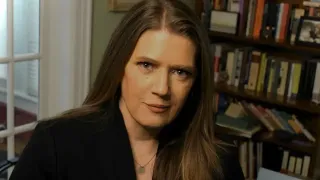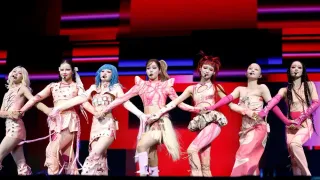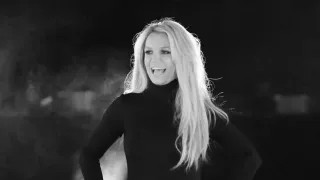September 25, 2022
Suzanne Vega: New Album, New Tour
Laura Moreno READ TIME: 5 MIN.
Having matured musically since her hit single "Luka" in 1987, Suzanne Vega's new album, "An Evening of New York Songs & Stories" includes re-recorded old songs as well as new ones.
This is the seventh album she has put out since 2010 when she started her own music label, Amanuensis. The albums are categorized by subject matter (such as "States of Being" and "Songs of Family"), rather than chronologically.
Blessed with an ethereal singing voice and a style all her own, after 40 years in the spotlight, her voice hasn't changed a bit. Her voice is still youthful, silky, even angelic.
In marked contrast, she first took center stage sporting a bold androgynous image, like David Bowie. Eschewing the flashy styles of the 1980s, she donned huge burlap baggy pants and men's leather suspenders and "sensible jackets" instead.
Ms. Vega is very open about having gone through a period of not wanting to be female. The period started in her teen years and ended abruptly with the birth of her daughter Ruby in 1994.
She didn't necessarily want to be male. More precisely, she would have liked to be "like a plant" if it were possible. Many of her songs, however, are female-centric, like "Stockings," "Caramel," "Ironbound/Fancy Poultry," and even "Tom's Diner," expressing longing.... Even when she sings about men, the approach is often equally soft, as with the "sweetest, softest hands" in her much-loved country song "Gypsy."
Print, Radio, Theater, Film & Book
Although it's not well known, Ms. Vega has written a number of pieces for The New York Times and won a Peabody Award for her 2003 PRI radio show on music, "American Mavericks."
For her undergraduate thesis as an English major at Barnard College, she used several short stories by the bisexual, Southern author Carson McCullers as the inspiration for a series of songs around which she later wrote a one-act play that has been performed off-Broadway. Now it's been made into a film, "Lover, Beloved" about Carson McCullers (played by Suzanne Vega), directed by Michael Tully. Ms. McCullers, like Ms. Vega, was a talented musician and worked odd jobs while studying the arts at NYU. She looks a lot like her, too.
In addition, Ms. Vega became an author in 2001 with the publication of her book, "The Passionate Eye: The Collected Writings of Suzanne Vega." It's mostly a collection of her lyrics and other poems.
Her lyrics are at times so astonishingly insightful that they seem to have been pulled whole straight from the ether, as with "The Soldier & The Queen" (from her "Solitude Standing" album). It begs the question, how did a girl in her 20s living in New York City write a song like this?
"He said, 'I see you now, and you are so very young
But I've seen more battles lost than I have battles won
And I've got this intuition, says it's all for your fun
And now will you tell me why?'
The young queen, she fixed him with an arrogant eye
She said, 'You won't understand, and you may as well not try.'
But her face was a child's, and he thought she would cry
But she closed herself up like a fan."
With neither political nor military experience, she presents the deep truth of the treachery of our human history up to now. There is no real transparency in matters of war beyond leaders simply trying to make it look transparent; we are all being played for their profit.
A Place in the Pantheon
It's nothing short of astounding that Suzanne Vega performed her biggest hit, "Luka," at the 1987 Grammy Awards, in the age of Cyndi Lauper and Madonna, alone on an empty stage with her guitar. And even more astoundingly, the performance holds up against the competition.
She still considers herself a folksinger, not really a composer. Nonetheless, the music she's written (not just the lyrics) is sheer genius. In my view, she's one of the great songwriters and lyricists of our time.
To be specific, the music itself as well as the lyrics of "Ironbound/Fancy Poultry" (from the "Solitude Standing" album) express a wistful lusciousness:
"The morning so slow as the wires cut through the sky.
She stops at the stall, fingers the ring, opens her purse,
feels the longing away from the ironbound border."
Toward the end, the music stops and then culminates in a repeated verse that is twice as fast and mimics the cry of a barker standing on a sidewalk. She achieves this by switching to an unexpected major chord (the song up until now has been in a minor key) set against an unexpected rhythm of triplets played by the guitar.
The tune then alternates between major and minor keys. And by simply inserting an ingenious half-beat of silence before the word 'hearts,' she gets us to think about the double meaning here. Then, she produces her own musical onomatopoeia by hitting the expected note in the melody and then going up half a step on the word 'free' to create the sensation of flying:
"Fancy poultry parts sold here.
Breasts and thighs and hearts.
Backs are cheap and wings are nearly free, nearly free."
Like Truman Capote, Suzanne Vega's words cut straight to the heart of enduring human truths. And, like Capote, she found success using the Spanish surname of a stepfather. Born Suzanne Nadine Peck, Ms. Vega grew up believing herself to half Puerto Rican until age 9, when her identity was shaken by the discovery that she was "white," despite speaking Spanish and growing up culturally Puerto Rican in Spanish Harlem.
It may've helped to know that, in fact, Puerto Ricans are descended from Europeans of all stripes, including England, Austria, and Germany.
Fortunately for us, music became her way of bridging the disconnection.
Suzanne Vega is on tour in California Sept. 26-29, 2022 (including Freight & Salvage in Berkeley, Sept. 26 and at the Montalvo Arts Center in Saratoga on Sept. 27. www.suzannevega.com
Help keep the Bay Area Reporter going in these tough times. To support local, independent, LGBTQ journalism, consider becoming a BAR member.






